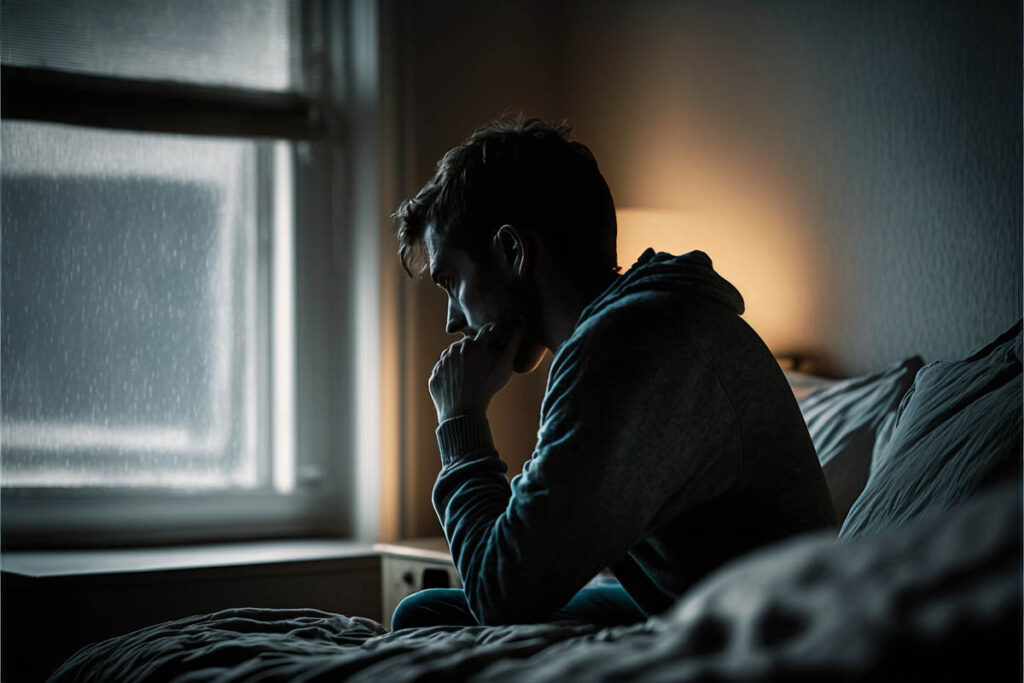There is a strong link between alcohol use and depression. However, does serious alcohol use lead to depression, or are depressed people more likely to drink too much? Both of these scenarios can and do happen.
If you struggle with depression, you are at risk of abusing or becoming dependent on alcohol. This severe mental health issue can cause you to experience feelings of sadness and hopelessness, which can begin to affect how you think and act. As a depressant, alcohol also impacts your feelings and behavior. For that reason, it’s not clear if depression leads to drinking or if it’s the other way around.
If you need alcohol and depression treatment, call 7 Summit Pathways at 813.212.7149. Our alcohol addiction treatment can help you reclaim control over your life and achieve lasting wellness.
What Are Depressants and How Do They Work?
Alcohol is a depressant. This class of drugs inhibits your central nervous system, slowing and impairing both physical and psychological functions. Other depressants include tranquilizers and sedatives.
When you use alcohol, the depressant blocks messages from nerve receptors to the brain, which reduces your brain’s overall awareness and activity. As brain activity slows, it changes your:
- Movement
- Emotions
- Perception
- Judgment
- Senses
Depressants can also make you more vulnerable to both physical and mental health risks, ranging from accidental injury to feelings of depression.
However, while depressants “depress” the nervous system, this doesn’t mean you always become sad under the influence of alcohol. Most people feel pretty pleasant, relaxed, and at ease when they use depressants. Long-term abuse, though, can lead to alcohol addiction, an emotionally depressing and even life-threatening condition.
Does Alcohol Cause Depression?
Many people believe that depressants cause people to feel depressed. While there is a clear link between alcohol and depression, there are those who drink because they are depressed and those whose drinking leads to depressive symptoms.
Oftentimes, depression comes first. Nearly one-third of those with major depression also have an alcohol addiction. Alcohol helps suppress and mask symptoms related to depression, including anxiety and insomnia. It allows them to escape the reality of their feelings and relax, leading these individuals to use alcohol to self-medicate.
However, drinking alcohol only makes depression worse. Those with depression who drink too much often suffer from severe depressive episodes that follow, including pervasive thoughts of suicide. Heavy alcohol consumption also makes antidepressants less effective.
In some cases, though, alcohol can lead to depression. Because of alcohol’s ability to alter the brain’s chemistry, this depressant can trigger symptoms of depression as well as several other mental and physical health problems.
Signs of Depression
There are several different types of depression common to those struggling with alcohol addiction, such as seasonal affective disorder (SAD), persistent depressive disorder, and major depression.
Symptoms of depression vary from person to person, but some of the more common signs include:
- Feelings of worthlessness
- Low self-esteem
- Excessive crying
- Changes in mood
- Irritability
- Anxiety
- Insomnia or hypersomnia
- Difficulty making decisions
- Trouble concentrating
- Low motivation and energy
- Avoiding social gatherings
- Recurring thoughts of suicide
Depression increases your risk of developing an addiction to alcohol or drugs. Without help, self-medicating depression with alcohol can increase your risk of severe injury and suicide. As your dependency grows stronger, alcohol addiction can take a toll on your relationships with your loved ones. Rehab for alcohol and depression may mitigate these damages and prevent potentially irreversible complications.
Start Treatment Today at 7 Summit Pathways
Co-occurring depression and alcohol addiction are serious problems that should not be ignored. Help is available, and even the most severe forms of depression and alcohol abuse can be treated.
At 7 Summit Pathways, we specialize in dual diagnosis treatment, providing individualized care for those with alcohol addiction that exists in conjunction with a psychological concern such as depression.
We see each of our patients as unique, tailoring your treatment plan to serve your specific needs best and get you on the path to Recovery. If you’re ready to change your life, contact us at 813.212.7149 or online.

